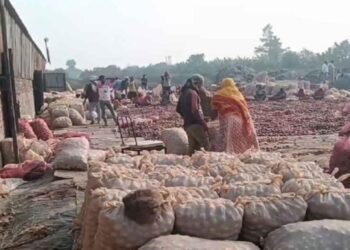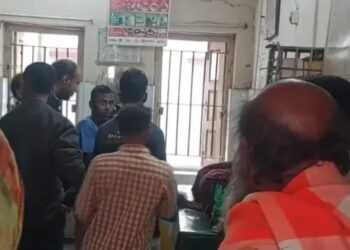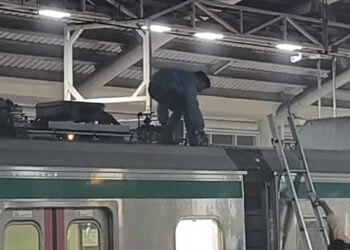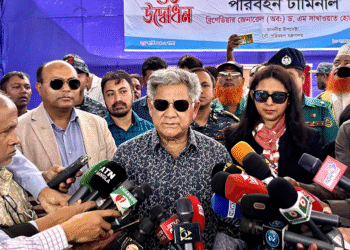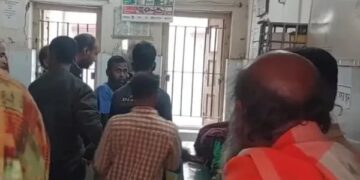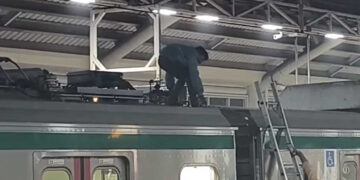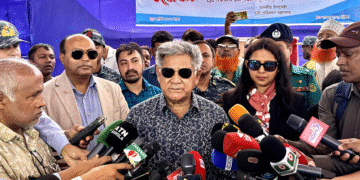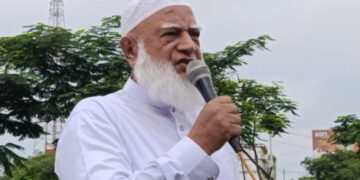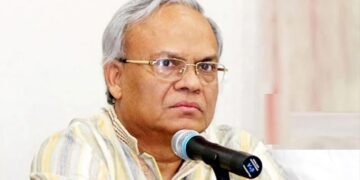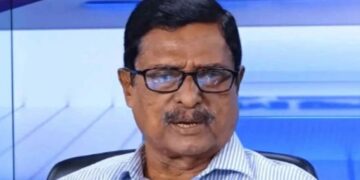Government’s New Decision on Police Weapons
The government of Bangladesh has decided to remove deadly or lethal weapons from the hands of regular police officers. This decision was taken during a meeting of the Law and Order Advisory Committee on Monday. After the meeting, Home Affairs Advisor Lieutenant General (Retd.) Jahangir Alam Chowdhury said that only the Armed Police Battalion (APBn) will now keep deadly weapons. Regular police officers will have to hand over such weapons to APBn.
What Is Meant by “Deadly Weapons”?
A dangerous weapon is any weapon designed to cause death or serious damage. These weapons are usually used by armed forces during times of war or conflict. Examples include firearms that can injure people fatally, such as handguns, rifles, and submachine guns (SMGs).
Who Will Choose Which Weapons Are Allowed for Police to Keep?
The kinds of weapons that the police can still employ will be determined by a special committee. Khoda Bakhsh Chowdhury, the Special Assistant to the Chief Adviser at the Ministry of Home Affairs, will serve as the committee’s leader.
Read More: NBR Divided Overnight, Official Order Announced
Weapons Typically Used by Police
Ordinarily, the police are supposed to handle protests and keep the violence under control without murdering anyone. They employ:
- Sticks called batons are used to manage crowds.
- Sound grenades and tear gas to scatter demonstrators
- Shotguns that use lead or rubber pellets (also known as “chhorra guli”)
During riots or other public disturbances, shotguns are frequently utilised. Although their primary purpose is to avoid death, they can still be deadly if used in close proximity or aimed at sensitive areas such as the head or chest.
Different Rules for the Use of Weapons in the Military and Police
The military uses powerful weapons like bombs, rockets, machine guns, and rifles to kill opponents in combat.
On the other hand, it is anticipated that police will use less dangerous weapons.
Instead of killing, they want to maintain law and order.
During the July Uprising, what happened?
A large number of individuals were shot dead during the public demonstrations in July 2024. A Begum Rokeya University student named Abu Sayeed lost his life after being struck by rubber bullets in the stomach and chest from a close distance.
Reports show that the police and even ruling party members used firearms like:
- Pistols
- Shotguns
- Rifles (like Chinese 7.62 mm)
- Submachine Guns (SMGs)
- Light Machine Guns (LMGs)
- Even foreign weapons like AK-47s and M-16 rifles
Public Reaction After the Uprising
The massive loss of lives caused by excessive police force shocked the country. To date, the government has verified that 834 individuals were killed, the majority of them by firearms. To avoid such tragedies in the future, the public, experts, and human rights organisations called for the withdrawal of police officers’ lethal firearms.
What the Laws Say Regarding Police Use of Weapons Bangladeshi law states:
- Only three situations allow police to use firearms:
- To keep others or themselves safe
- To disperse unlawful assemblies
- To apprehend dangerous offenders
Police must issue warnings before deploying firearms and only do so as a last resort.
The law also says:
- Guns must be aimed carefully.
- Shooting should stop as soon as the goal is achieved.
- Shooting into crowds or aiming at people’s heads is strictly forbidden.
International Laws Also Restrict Use of Deadly Weapons
Many global human rights agreements say police should not use deadly weapons against unarmed protesters. Such actions violate international laws unless there is a serious threat to life.
Why Some People Still Want Police to Have Firearms
Some experts argue that criminals and terrorists use deadly weapons. So, if the police don’t have equal power, they might not be able to handle dangerous situations.
Former Inspector General of Police (IGP) Mohammad Nurul Huda said that all police weapons are technically deadly. Even rubber bullets can kill if used incorrectly. He also added that the main problem is not the weapons but the lack of proper command and control.
What Takes Place Next?
At this point, a special committee will determine:
- Which firearms are appropriate for police officers?
- How to use them
- How to teach police officers to refrain from needless violence
The government is taking this action to safeguard public lives and prevent a recurrence of the sad events of the July 2024 revolt.
Source: Prothom Alo









